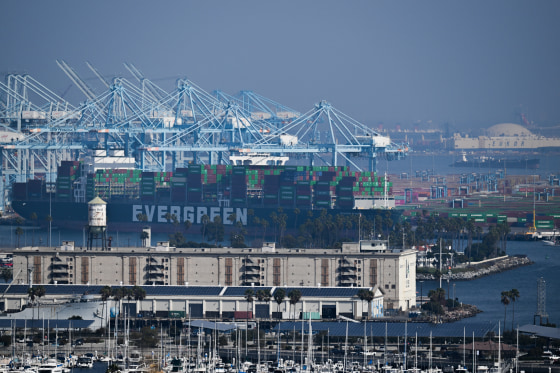
Hong KongChina announced a number of steps, including its own tariffs of 10% to 15% on certain U.S. items, in prompt retaliation Tuesday as a 10% U.S. duty on Chinese goods went into force.
According to the government, China will begin enforcing a 10% tariff on crude oil, agricultural machinery, large-displacement cars, and pickup trucks on February 10 and a 15% tax on coal and liquefied natural gas on February 10.
Minutes after the U.S. tax went into effect at 12:01 a.m. ET, China made its announcement. The United States and China, the two largest economies in the world, run the risk of escalating into a trade war if tit-for-tat tariffs are not prevented.
“The Customs Tariff Commission of the State Council, China’s Cabinet, said in a statement that this unilateral tariff hike by the U.S. side seriously violates World Trade Organization rules, does nothing to solve its own problems, and undermines normal China U.S. economic and trade cooperation.”
Beijing also imposed export restrictions on products containing tungsten and other rare earth metals, as well as an inquiry into Google for suspected anti-trust crimes.
Additionally, it stated that PVH Corp., the owner of Calvin Klein and Tommy Hilfiger, and the U.S. genome sequencing corporation Illumina will be placed on the list of unreliable entities, which would limit their capacity to conduct business in China.
Citing border security and the illegal international flow of drugs like fentanyl, President Donald Trump announced the levy on Saturday along with 25% duties on goods imported from Canada and Mexico. No similar agreement seems to have been reached with China, despite the fact that the tariffs on Canada and Mexico have been suspended for 30 days following discussions with their presidents.
The Mainland For the Lunar New Year holiday, Chinese marketplaces are still closed. The news that the tariffs between Canada and Mexico had been suspended caused other Asia-Pacific markets to rise earlier Tuesday, according to CNBC.
